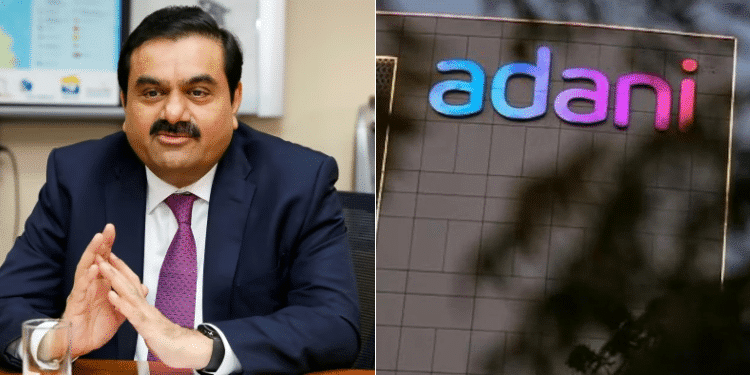When 30-year-old Nelson Amenya resigned from his position as a retail manager at one of Kenya’s top stores to pursue his dream of attaining an MBA at HEC Paris, a prestigious university in France 2023, the goal was clear: excel in his studies and return home to play an influential role in Kenya’s corporate landscape.
He envisioned a future of innovation in the region known for its exploding young demographic. But his life took an unexpected turn within a year, a far more complex and dangerous reality.
The catalyst? A stunning revelation of a two-billion-dollar deal between senior Kenyan government officials and the infamous Adani Group, which in recent months has been embroiled in controversy and ultimately canceled by President William Ruto.
Also Read: Ruto Stops JKIA Adani Takeover
Nelson is being hailed as a hero after exposing a now controversial deal between Adani and the Kenyan government. He relentlessly called out what he termed as “a secret collusion” to push through a deal that would hand over control of Jomo Kenyatta International Airport (JKIA) the country’s main airport to Adani for 30 years without following due legal process.

“I uncovered a very shady deal, a deal that was going to hurt the Kenyan economy, that was 90% benefiting a private entity that is Adani and 10% us the Kenyan people” Nelson said in an interview with the BBC.
Nelson Amenya Movement
What began as a peaceful pursuit of education quickly turned into a high-stake and nerve-racking journey of whistleblowing. Nelson quickly found himself on the radar of Kenya’s top politicos and their henchmen.
“The last thing on my mind one year ago was that I may never return to Kenya again in this lifetime,” Amenya recalls, as he reflects on the chain of events that spiraled after he discovered the deal’s implications.
“There are some people who are very angry with me for what I did, and they would like to come at me”
Nelson’s expose in a series of tweets on X formerly Twitter led to a nationwide outrage and demonstrations by airport workers calling for accountability and openness.
One of the key drivers in the upswing of digital activism and whistleblowing in the country has been the rise of #KOT (Kenyans on Twitter) now #KOX – Kenyans on X, an online movement that has often led to public pressure on politicians and business leaders involved in scandalous deals.
Also Read: Campaign Launched to Counter Viral Memes Mocking Ruto
Risks vs benefits
Whistleblowing has long been a risky endeavor in Kenya, where the price of speaking out against corruption or unethical business deals can be extremely high.
However, in recent years, a new wave of digital activism has transformed how whistleblowers like Amenya can operate.
The rise of digital platforms has increased the visibility of whistleblowing efforts and also, introduced new tools of resistance, such as anonymous reporting and crowd-funded investigative efforts.
In Kenya, the legal framework for protecting whistleblowers is still nascent. While laws such as the Whistleblower Protection Act (2016) exist, their implementation has been inconsistent, and many potential informants remain hesitant to come forward due to the fear of retaliation.
For many, the risks outweigh the benefits, but emerging young whistleblowers like Nelson Amenya, with the backing of an active citizenry on digital media, are reshaping the narrative around corporate governance and corruption, holding the powerful accountable.
This article was written by Elphas Lagat, a Kenyan journalist based in London.
Follow our WhatsApp Channel and join our WhatsApp Group for real-time news updates.











































































